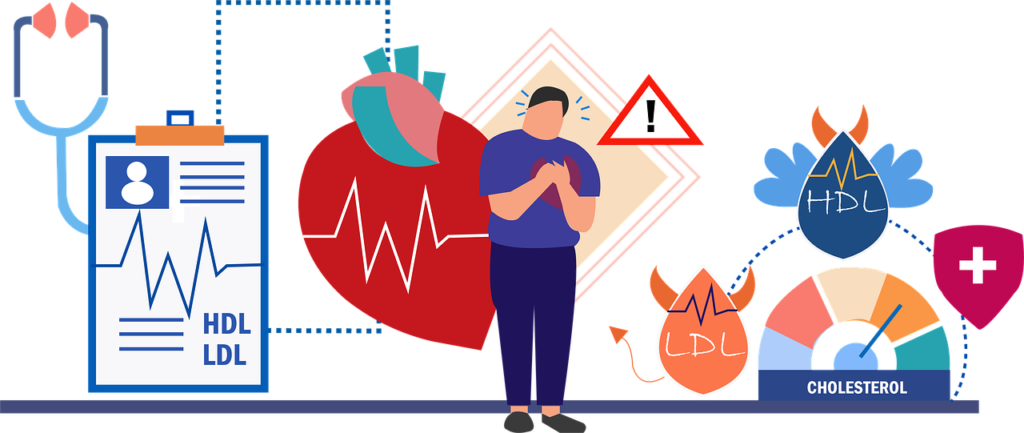Heart failure is a serious condition that affects millions worldwide, yet its early symptoms are often overlooked. Many people assume heart failure happens suddenly, but in reality, it can develop gradually, with subtle warning signs that go unnoticed. Detecting these silent signs early can make a huge difference in treatment and survival.
In this article, we’ll explore the hidden symptoms of heart failure, why they matter, and what you can do to protect your heart before it’s too late.
What is Heart Failure?
Heart failure doesn’t mean your heart has stopped working—it means it’s not pumping blood as efficiently as it should. This leads to fluid buildup, shortness of breath, and fatigue, among other symptoms. Over time, if left untreated, it can become life-threatening.

Silent Signs You Shouldn’t Ignore
1. Unexplained Fatigue and Weakness
Do you feel tired even after getting enough rest? Persistent fatigue and weakness can indicate that your heart is struggling to pump oxygen-rich blood to your muscles and organs. If you find daily activities like walking or climbing stairs exhausting, it’s time to get checked.

2. Shortness of Breath (Even at Rest)
Feeling breathless after minor activities—or even while lying down—is a key warning sign of heart failure. This happens when fluid builds up in the lungs, making it hard to breathe properly. If you notice frequent shortness of breath, especially at night, seek medical attention.
3. Swelling in the Feet, Ankles, or Abdomen
Swollen feet, ankles, or even your belly could be a sign of fluid retention caused by heart failure. When the heart doesn’t pump efficiently, fluids accumulate in the body, leading to noticeable swelling. This symptom often worsens as the day progresses.

4. Sudden or Persistent Weight Gain
Gaining weight rapidly (more than 2-3 pounds in a day or 5 pounds in a week) without a change in diet or lifestyle could signal fluid retention—a major red flag for heart failure.

5. Chronic Cough or Wheezing
A lingering cough that produces white or pink mucus can indicate fluid buildup in the lungs, a condition known as pulmonary congestion. If you have a chronic, unexplained cough, it’s important to consult a doctor.

6. Increased Heart Rate or Irregular Heartbeat
If you feel like your heart is racing, skipping beats, or pounding for no reason, it could be a sign of an overworked heart trying to compensate for weak pumping ability.
7. Difficulty Concentrating or Confusion
Reduced blood flow to the brain can cause memory problems, confusion, or difficulty focusing. If you or a loved one are experiencing sudden mental fog or disorientation, it may be linked to heart function.

Who is at Risk?
Certain factors increase your chances of developing heart failure, including:
✅ High blood pressure
✅ Diabetes
✅ Coronary artery disease
✅ Obesity
✅ Smoking and excessive alcohol use
✅ Family history of heart disease
If you have any of these risk factors, it’s crucial to watch for early symptoms.
How to Take Action Before It’s Too Late
🩺 Get Regular Heart Checkups – Early detection is key! Regular medical exams and heart function tests can help catch issues before they become severe.
🥗 Adopt a Heart-Healthy Diet – Reduce salt, sugar, and unhealthy fats, and eat more fruits, vegetables, and lean proteins.
🏃♂️ Stay Active – Regular exercise strengthens your heart and improves circulation. Even 30 minutes of walking daily can make a difference.
🚭 Quit Smoking & Limit Alcohol – Smoking and excessive drinking weaken the heart over time. Cutting back can improve your heart health dramatically.
💊 Manage Chronic Conditions – If you have diabetes, high blood pressure, or high cholesterol, take your medications as prescribed and follow your doctor’s advice.
Final Thoughts
Heart failure doesn’t always come with loud warning signs. Often, the silent symptoms creep in gradually, making it easy to ignore them—until it’s too late. By staying aware of these early warning signs and taking preventive action, you can protect your heart and live a healthier, longer life.
If you notice any of these symptoms, don’t wait. See a doctor and get your heart checked today!
What are the first signs of heart failure?
The earliest signs of heart failure often include fatigue, shortness of breath, swelling in the legs or feet, and unexplained weight gain due to fluid retention. Some people may also experience a persistent cough, irregular heartbeat, or mental fog.
Can heart failure develop without obvious symptoms?
Yes. Many cases of heart failure progress silently, with mild or vague symptoms that people often dismiss as aging, stress, or lack of exercise. That’s why recognizing subtle signs early is crucial.
Who is most at risk for heart failure?
Individuals with high blood pressure, diabetes, obesity, coronary artery disease, or a family history of heart disease are at higher risk. Smoking, excessive alcohol consumption, and a sedentary lifestyle also increase the chances of developing heart failure.
How can I tell if my shortness of breath is from heart failure or something else?
If you experience shortness of breath while resting, lying down, or performing minor activities, it could be a sign of heart failure, especially if it’s accompanied by swelling in the legs or persistent fatigue. A doctor can confirm the cause through tests like an echocardiogram or chest X-ray.
Is heart failure reversible?
While heart failure is a chronic condition, early detection and lifestyle changes can significantly improve heart function. Proper treatment, medication, and a heart-healthy lifestyle can help manage symptoms and slow disease progression.
What should I do if I notice these silent symptoms?
If you experience any unusual fatigue, swelling, shortness of breath, or irregular heartbeat, schedule a visit with your doctor as soon as possible. Early diagnosis can prevent complications and improve treatment outcomes.
How can I prevent heart failure?
To lower your risk, follow these steps:
✔ Maintain a healthy diet (low in salt, sugar, and unhealthy fats)
✔ Exercise regularly (at least 30 minutes of moderate activity most days)
✔ Control blood pressure and diabetes
✔ Quit smoking and limit alcohol
✔ Get regular heart checkups
Can young people develop heart failure?
Yes, although heart failure is more common in older adults, it can occur at any age due to conditions like genetic heart diseases, untreated high blood pressure, viral infections, or excessive drug/alcohol use.
What tests can diagnose heart failure?
Doctors may use several tests, including:
🩺 Echocardiogram (ECG/EKG) – Measures heart function
📊 Blood tests – Check for heart damage markers
📉 Chest X-ray – Detects fluid buildup in the lungs
🔬 Stress test – Assesses how the heart responds to exertion
Can stress or anxiety cause heart failure?
While stress and anxiety alone do not directly cause heart failure, chronic stress can contribute to high blood pressure and heart disease, which may eventually lead to heart failure. Practicing stress management techniques, such as meditation, deep breathing, and exercise, can help protect your heart.


